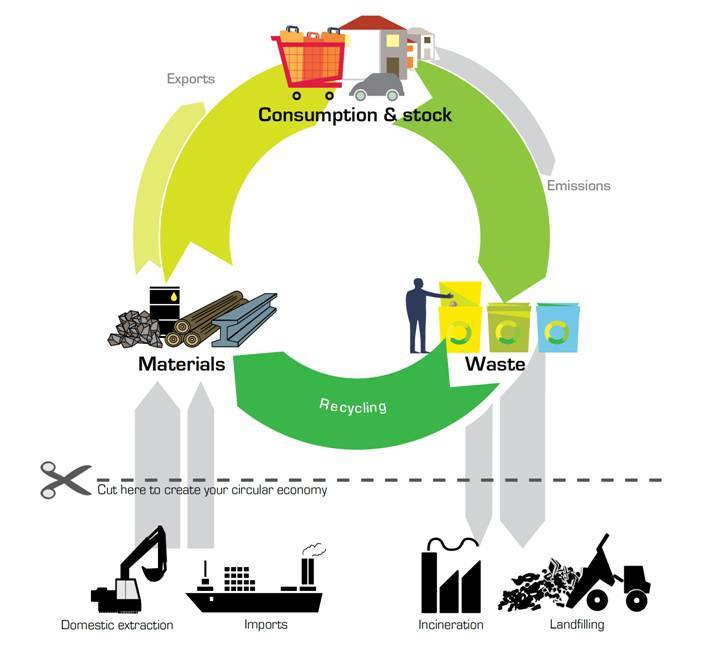Press release: The 4 guiding principles for a Circular Economy

Brussels, 18 May 2015
After the withdrawal of the Circular Economy Package in February 2015, the European Commission committed itself to present a more ambitious proposal that would drive the European Union towards a truly circular economy.
 Zero Waste Europe and a group of likeminded NGOs believe that, in order to create a circular economy, the new legislative package needs to focus on four interdependent pillars:
Zero Waste Europe and a group of likeminded NGOs believe that, in order to create a circular economy, the new legislative package needs to focus on four interdependent pillars:
– efficient material management,
– reduction of toxic substances,
– energy efficiency,
– and economic incentives.
Joan-Marc Simon, Director of Zero Waste Europe said “In order to reap the potential that the Circular Economy has to offer it is necessary to address material management, toxics, energy and economic incentives simultaneously. This wholistic approach is the silver bullet to trigger a multiplicator effect on employment, resource dependency, fight against climate change, health, agriculture and reduction of marine litter.”
EU policies should emphasize resource efficiency via product design related and waste policies that allow to phase out hazardous materials, enable and incentivise repaire and reuse of products and ensure the use of recycled and recyclable materials.
Toxic substances should be avoided at the design stage to allow products and materials to circulate in a closed loop without endangering the quality of materials and the health of citizens, workers and the environment. The new Circular Economy Package should therefore strengthen the REACH regulation.
EU energy policies should also be oriented towards energy preservation of prevention of re-use and recycling. The existing methodologies and premiums schemes should be revised to stop rewarding energy generation from burning waste incineration over preservation of energy embedded in products and materials.
Finally, the EU needs to change the current economic incentives that drive the linear consumption pattern in order to maximise resource efficiency and make it legally and economically viable to sell services instead of goods. Wasteful practices should be more expensive than efficient ones.
The document details how only through a coordinated and coherent policy addressing these four pillars, the European Union will be able to build a circular economy, capable of maximizing its benefits in terms of economic savings, job creation, energy and resource savings and healthier environment.
To download the document click here
For more information:
ECOS
EEB
Friends of the Earth Europe
Health and Environment Alliance
Health Care Without Harm
Oceana
Quaker Council for European Affairs
Reloop
Rreuse
Seas-at-Risk
Surfrider Foundation
Zero Waste Europe
Contact:
Joan Marc Simon – Zero Waste Europe
[email protected]
+32 486832576